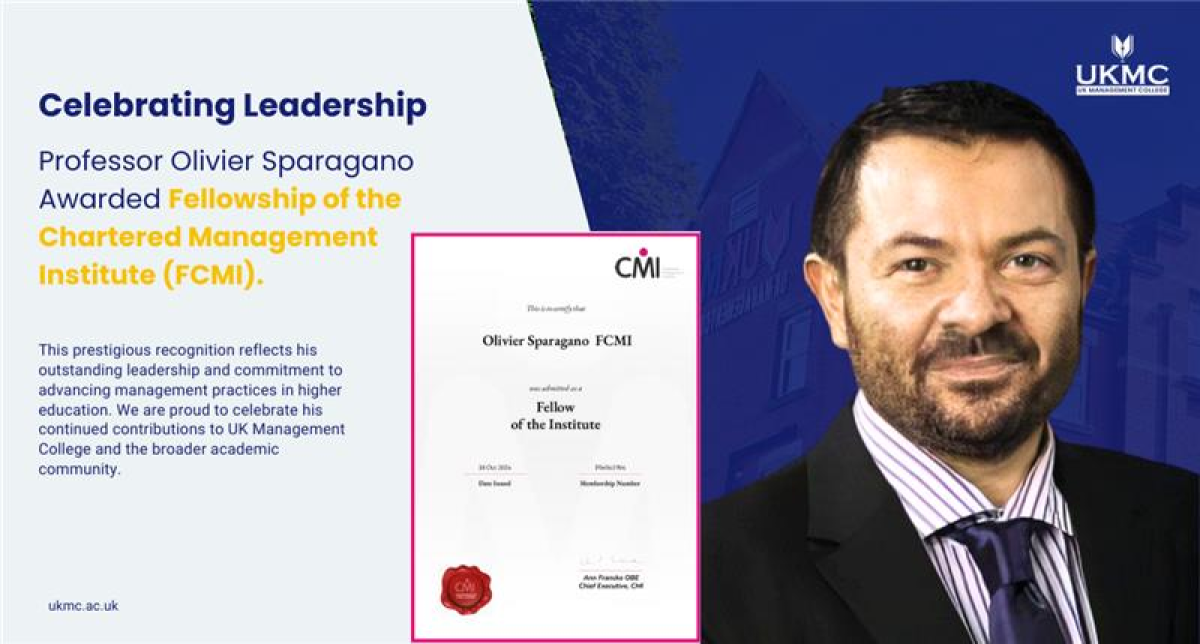

UKMC
25 February 2024
Admissions Insider for British and EU Students
The admissions procedure may appear stressful and difficult for UK or EU students. However, with the right guidance and preparation, it can be a successful journey. This complete guide will provide you with an admission Insider for British and EU students.
Understanding the British and EU Education Systems
The British education system is known for its quality and diversity, offering various courses and degrees. In the UK, education is largely overseen by the national government.
On the other hand, the EU education system varies across different countries, as it's not really a country. So there, education policies are determined by the individual member states.
Choosing the Right Course and University
Choosing the right course and university can significantly impact your future career. Here are some factors to consider and resources to assist you in making a wise choice:
Factors to Consider
- Personal Interests and Passions: Select a course that reflects your passions and areas of interest. Consider what subjects you enjoy studying and what career path you envision for yourself.
- Career Goals: Consider your long-term career goals. Think about how a particular course and university can help you achieve them. Research the job opportunities available in your chosen field.
- Academic Reputation: Look into the academic reputation of the university and the specific department offering your chosen course. Consider factors such as rankings, faculty expertise, research opportunities, and the department of your chosen course.
- Location: Decide whether you prefer studying in an urban or rural environment. You need to check factors like proximity to home, climate, cost of living, and cultural opportunities.
Resources for Decision-Making
- University Websites: Check the websites of the universities that interest you. Then, gather information about their courses, admissions process, campus life, and resources.
- College Rankings: Consult college rankings from reputable sources such as QS World University Rankings, Times Higher Education, and US News & World Report.
- Guidance Counselors: Seek guidance from high school counsellors, teachers, or career advisors.
- Campus Visits: If possible, schedule campus visits to get a firsthand experience of the university's facilities, atmosphere, and student life.
- Student Reviews and Forums: Read reviews and testimonials from current and former students on websites and forums. Some of the forums are Unigo, College Confidential, and Reddit.

Researching and Shortlisting Universities
Researching and shortlisting universities for admission involves a comprehensive approach. Here are some ideas on how to effectively utilize these resources:
University Rankings
- To identify top-performing institutions globally, check reputable university ranking systems.
- Consider the criteria used in each ranking system.
- Create a list of universities that consistently rank highly across multiple ranking systems to ensure a well-rounded selection.
University Guides
- Consult university guides and directories such as the Princeton Review, Fiske Guide to Colleges, and Times Good University Guide.
- Pay attention to specific details provided in these guides, like student demographics, campus facilities, and student satisfaction ratings.
Departmental Offerings
- Explore the offerings of individual departments or faculties within each university.
- Review course catalogues, program descriptions, and faculty profiles to understand the curriculum.
- Look for universities that have strong departments or schools in your chosen field.
Application Requirements and Deadlines
Each university will have its own set of application requirements and deadlines. Generally, those institutions required academic transcripts, personal statements, reference letters, and English language proficiency tests.
Most of the UK university programs will require the student to pass either A-levels or attain specific grades. The admission requirements for European universities may also need SAT or ACT scores.
Check the admission deadlines and submit your applications well in advance to avoid any last-minute rush.
Obtaining Strong References
Strong references can enhance your application greatly. Choose people like your teachers, mentors, or employers who know you well academically or professionally. Contact them in advance and request their support. Provide them with any necessary information or documentation to assist them in writing a strong reference.
Preparing for Admissions Tests and Interviews
The test preparation and interviews for British and EU students are essential steps, too. Here are common tests or entrance exams required for UK or EU university admission:
- UK Clinical Aptitude Test (UKCAT)
- Biomedical Admissions Test (BMAT)
- Thinking Skills Assessment (TSA)
- National Admissions Test for Law (LNAT)
- Cambridge Law Test
- SAT or ACT
Strategies for Success
- Know what qualities the institutions are looking for. Prepare yourself to showcase these attributes, whether critical thinking, communication skills, or subject knowledge.
- Stay calm and confident. Nerves are natural but stay composed during the tests and interviews. Remember, the assessors are not just looking for correct answers but also how you approach problems and express yourself.
- Stay informed with current affairs, developments in your chosen field, and any changes in admission requirements or interview formats.

The Application Process
- Research Universities and Courses
- Check Admission Requirements
- Register for Standardized Tests
- Complete your application form
- Complete UCAS application for UK Universities
- Submit Supporting Documents
- Pay Application Fees
Submitting Your Application
Once you have completed all the necessary application details, it's time to submit it. Double-check all the documents required for applying to UK universities. Make sure they are accurate and well-presented. Then, submit your application following the designated submission method (online or via mail).
Keep a record of all the submitted documents and confirmations for future reference. Submitting your application a few days before the deadline is good practice to avoid any unforeseen issues.
Also Read:
- The Future of Business and Healthcare: Industry Trends
- Business Management Courses in the UK
- Why You Should Study Health and Social Care Management?
Selection Process
Initial Screening: Universities review applications to ensure they meet minimum academic requirements and any specific prerequisites for the chosen course.
Assessment Tests (if applicable): Depending on the course, applicants may be required to sit for standardized tests such as the UKCAT, BMAT, LNAT, or others. Scores from these tests are considered alongside other application materials.
Personal Statement Evaluation: Admissions teams assess personal statements to understand applicants' motivations, achievements, extracurricular activities, and suitability for the chosen course.
Reference Letters: Reference letters provided by teachers, mentors, or employers are evaluated to gain insight into applicants' character, academic potential, and suitability for the course.
Interviews (if applicable): Some universities may invite the shortlisted candidates for interviews (in person or via video conferencing).
Acceptance and Enrollment
If you're selected for admission, you'll receive an offer letter via email from the university. Read through the offer letter carefully. Follow the given instructions to accept or reject the offer. Pay attention to any conditions or requirements that must be fulfilled before enrollment.
Make any necessary arrangements for accommodation, visa applications, and financial matters. Contact the university's admissions office for any further information or assistance.
Financing Your Education
Financing is also an important aspect to consider. Research and explore the various funding options available to British and EU students. Explore student loans, bursaries, grants, and scholarships. Apply for financial aid as early as possible to increase your chances of securing funding.
Support Services for British and EU Students
Tutoring Centers: Many universities offer tutoring centres where students can receive additional help with coursework, assignments, and exam preparation.
Well-being Centers: Some institutions have dedicated well-being centres that offer holistic support and advice on maintaining a healthy lifestyle.
Career Advising: Career advisors help students explore career options and prepare for interviews and networking opportunities.
Internship and Placement Support: Universities may facilitate internships, work placements, or industry projects to provide students with practical experience.
Conclusion
The admissions process as a British or EU student is complex and challenging. However, with careful planning, you can successfully navigate this journey. So, follow this free admission insider for British and EU students and maximize your chances of securing a place at your desired institution.



